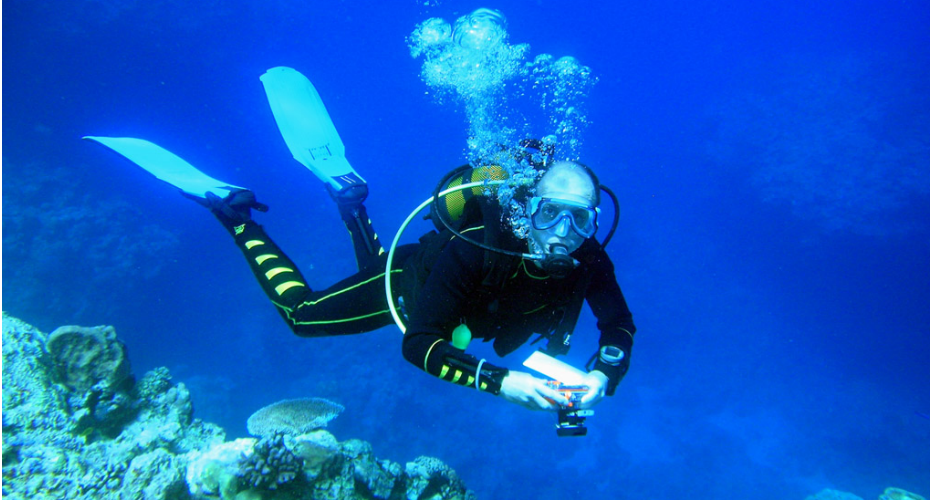‘The blue heart of our planet’ – Oceans and Climate Change challenges
Our oceans cover more than 70% of the earth’s surface and climate change has presented a unique challenge on how to maintain and care for them in the face of a changing environment. Alumnus Dan Laffoley (BSc Hons Ecology - Biological Sciences, 1984 and a PhD Marine Ecology, 1988) has worked as an ocean conservationist around the world for over 30 years and shares his experiences.
Dan’s interest in the natural world stems from his childhood in Jersey, surrounded by the ocean that he loved from an early age. This passion still drives Dan, who wants future generations to be able to grow up exploring the marvels of a living, thriving ocean.
He said: “Earth Day reminds us that we are the generation that knows the damage being inflicted on the Earth, when others before could never know what the issues are, and how we can and must act to turn the corner towards a better future for us all. We have the power to bring about change for the better and so what happens next is very largely up to us.”
When Dan was growing up there was no university on Jersey and Dan came to Exeter to study his Bsc in ecology and afterwards continuing to study his PhD in Marine Ecology supervised by Tegwyn Harris and the late David Nicolls. During this time he learnt how to SCUBA dive and all this this gave him skills and values that prepared him for his career and global exploits that lay ahead.
During his career Dan has influenced how we see the ocean, and in particular on improving how information technology can help protect the ocean. This has included working with Google to put a three-dimensional element on Maps and Earth products that we all now use.
He has achieved great work in his career as Head of Marine Conservation in the conservation agency in England, including the designation of the first fully protected marine protected area (MPA) in England around Lundy Island in the Bristol Channel, and more lately via IUCN in helping create the global targets, guidance and standards for ocean protection that countries throughout the world aspire to meet. Dan also recently worked with two young professionals on a request from Defra to create a film narrated by Sting which will help spearhead our country’s global efforts to protect at least 30% of the ocean by 2030.
Dan said: “This work is not without its challenges because whilst opinions are changing driven by the problems of say ocean plastics, many people still are disconnected from the natural world, they see the ocean as a time consuming problem between them and their holidays, and not the essential planetary life support system, which is very much is.
“However, the two biggest challenges we now face are how we still view the world in a human-centric way, and how we have failed to engage with the role and fate of our planetary life support system - the ocean. In photos from our planet from space, what stands out is the overall blueness of our planet but move closer and we have not maintained that perspective and as in nearly every commonly used chart and map of the world we show just the land side, perhaps comforting ourselves with a selfish view of where most of us live, and not how are world functions.”
In Dan’s opinion, there are some key actions that can be taken in order to support our earth. He strongly believes that the time for talking is over and in what happens next everyone has a part to play.
He said: “For me above all we need to embrace how our world really works and the role of the ocean in our ocean dominated planet. It is the blue heart of Earth and as the famous American oceanographer and good friend Sylvia Earle says – ‘so how much of your own heart would you protect – 10%, 20%, half or all of it!’ So, there is much more to do, so let’s get it done!”

